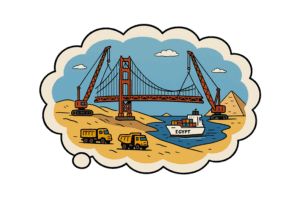The Vietnamese language
Vietnamese has around 70 million speakers worldwide, with minority populations in Cambodia and China.
The Vietnamese language is the official language of Vietnam and is a part of the Austroasiatic language family. Rich in history and cultural significance, the Vietnamese language has influences from Chinese, French, and other languages.
Brief History of Origins:
- Early Influences: Vietnamese is thought to have originated more than a thousand years ago. The Chinese strongly influenced it, given Vietnam’s geographical proximity and historical relationship with China.
- Latin Script Adoption: In the 17th century, Portuguese and French missionaries introduced a Latin-based script known as Quốc Ngữ. This replaced the older Chữ Nôm script derived from Chinese characters.
- French Colonial Influence: During the French colonial period, many French words were adopted into Vietnamese, especially in areas like law, governance, and cuisine.
- Modern Times: Vietnamese has continued to evolve, reflecting cultural changes and the influence of other foreign languages, including English.
Number of Speakers:
- Approximately 76 million people speak Vietnamese as their first language.
- It is also spoken by about 4 million Vietnamese diaspora, particularly in the United States, Australia, and other countries.
Where It Is an Official Language:
- Vietnamese is the official language of Vietnam.
- It is also a recognised minority language in the Czech Republic.
Example of Text:
Here’s a common Vietnamese proverb, along with its English translation:
Vietnamese: “Cái nết đánh chết cái đẹp.”
English translation: “Good character beats good looks.”
Where It Is Used and How:
- In Vietnam: Used in all government, legal, educational, media, and business contexts. It’s the medium of instruction in schools and universities.
- In the Vietnamese Diaspora: Used among Vietnamese communities abroad, maintaining cultural connections and traditions.
- In Tourism: English-speaking tourists in Vietnam might encounter simple English phrases intermingled with Vietnamese, especially in urban areas and tourist hubs.
- In Cuisine: Vietnamese culinary terms have become more familiar globally, with dishes like ‘phở’ and ‘bánh mì’ being recognised and enjoyed internationally.
Examples of English Words Used in Vietnamese:
Vietnamese has absorbed many English words, particularly in technology and modern culture. Some examples include:
- Cà phê (from ‘coffee’)
- Tivi (from ‘television’)
- Internet (used as-is in Vietnamese)
- Xe hơi (from ‘car’; the word ‘hơi’ meaning ‘steam’ reflects the early term’ steam car’)
Vietnamese Words in English:
Some Vietnamese words have also made their way into English, especially related to food and culture:
- Phở: A famous Vietnamese noodle soup.
- Bánh Mì: A Vietnamese sandwich consisting of a French baguette filled with various ingredients.
- Ao Dai: A traditional Vietnamese garment.
The Vietnamese language is rich and multifaceted, reflecting Vietnam’s complex history and cultural diversity. Vietnamese continues to evolve from its Chinese-influenced origins to its French colonial legacy and current global influences. Its script transformation from Chữ Nôm to the Latin-based Quốc Ngữ is a unique aspect of its history.
With millions of speakers in Vietnam and worldwide, Vietnamese is a vital aspect of national identity and a bridge connecting Vietnamese communities abroad. Its influence on global cuisine and the absorption of words from languages like English demonstrate the dynamic nature of Vietnamese, which continues to grow and adapt in our globalised world.
Our translation services - FAQ
Do you use native translators?
Yes, always. All our translators are native speakers and most are still resident in their native country. We pride ourselves on ensuring that all Brightlines’ translators are native. We do not accept applications from non-native candidates or allow them to register on our online recruitment database. All our translators are rigorously tested.
How long will the translations take?
The turnaround for the translation will depend on the word count. As a rough guide, assume that the translators can comfortably process about 2500 words of non-specialised text per day. Proofreading can effectively be completed on a basis of 4000-6000 words a day. Our minimum turnaround time is usually about three days, although it is possible to shorten this if you are in a rush for the final files and we will always be happy to discuss this with you.
What is the variation in your translators’ experience and qualifications? Are they native speakers? Will the cost increase if we use a more experienced translator?
All our translators have to go through a series of tests to make sure they are as good as they say they are, and only if they pass are they allowed to work for Brightlines. There is quite a range of experience and qualifications, but all translators have a minimum of five years’ experience. All translators translate into their mother-tongue without exception and are generally based in-country so they are up-to-date with the local language. We match translators with projects/clients depending on the subject matter, and most of our translators have industry experience in their speciality – there is no better experience than being immersed professionally in the industry they specialise in. Our costs are based on translator experience, speciality (i.e. medical, creative, scientific) and the language choice.
Which languages can you translate into?
We have an extensive database with hundreds of trusted and tested translators covering all commercial languages. If you cannot see the language or dialect you need please ask.
I don’t know the word count; can you base the quote on the number of pages?
Our pricing structure is based on a rate-per-word, but we can estimate from a page count. If we can’t see the source document then we would usually estimate between 300 – 500 words a page depending on the density of the text and the presence of photos and images.
Does the translation need to be proofread?
Brightlines is an ISO 9001:2015 certified company. This means that quality is safeguarded. We adhere to the “four-eyes principle” and translations are always checked by a second professional proofreader (who is not the translator). If the translation is for internal use and reference purposes only (i.e. not to be published, distributed or used in a court of law), or you simply don’t wish to have proofreading, we can remove the proofreading stage.
Get in touch
If you need Vietnamese translations, get in touch with our team, or get a quick quote.






